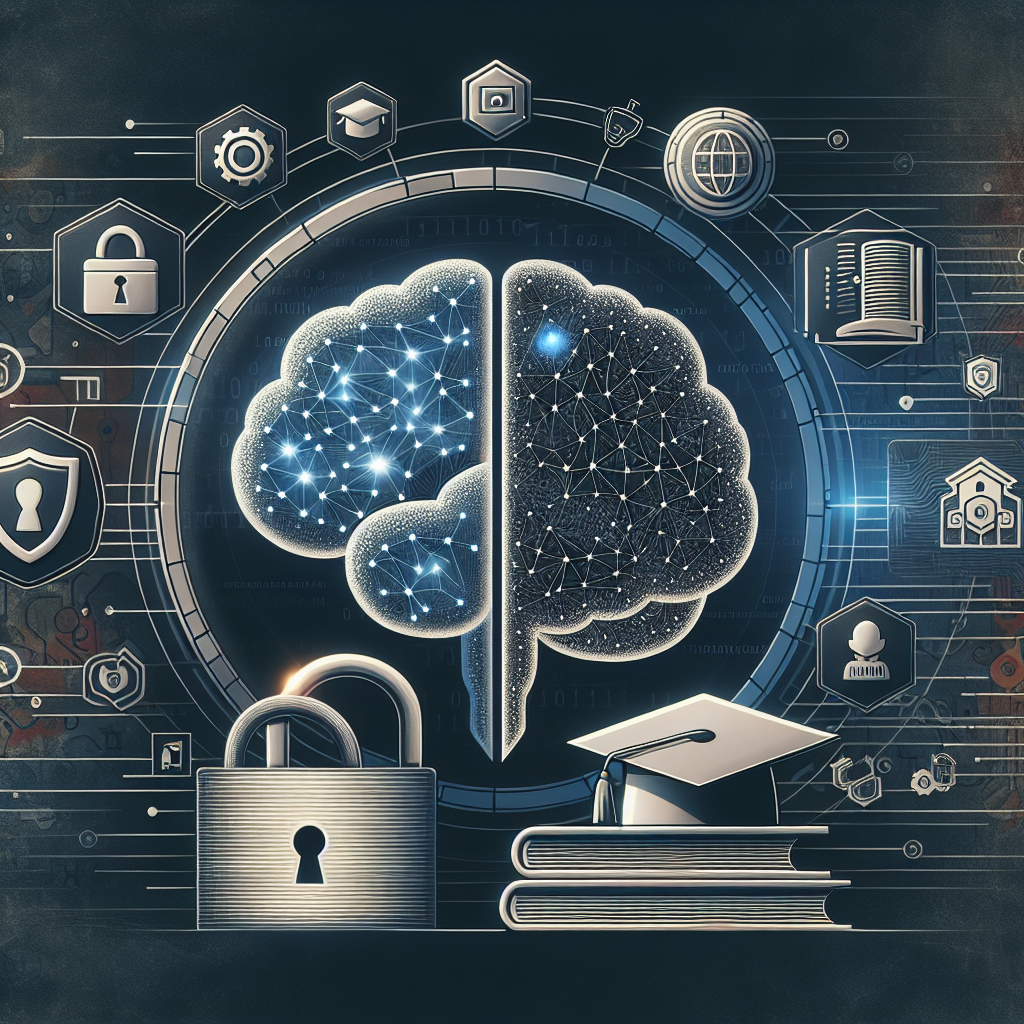In recent years, the education sector has seen a significant increase in the use of artificial intelligence (AI) technologies to improve student learning outcomes, streamline administrative processes, and enhance overall efficiency. While these advancements have certainly brought about numerous benefits, they have also raised concerns about data privacy and security.
As AI becomes more prevalent in the education sector, it is crucial to understand its impact on data protection and privacy. In this article, we will explore the future of privacy in the education sector in the age of AI and discuss the implications for data protection.
The Role of AI in the Education Sector
AI technologies are being increasingly utilized in the education sector to personalize learning experiences, predict student outcomes, and automate administrative tasks. Machine learning algorithms can analyze large amounts of data to identify patterns and trends, enabling educators to better understand student needs and tailor instruction accordingly.
For example, AI-powered learning platforms can provide personalized recommendations for students based on their individual learning styles, preferences, and performance data. This can help students stay engaged and motivated, leading to improved learning outcomes.
AI can also be used to predict student outcomes, such as the likelihood of dropping out or failing a course. By analyzing various factors including attendance records, grades, and behavior patterns, AI algorithms can identify students who may be at risk and provide early intervention strategies to help them succeed.
Furthermore, AI technologies can automate administrative tasks such as grading assignments, scheduling classes, and managing student records. This can free up educators’ time to focus on more meaningful tasks, such as providing personalized support to students and developing innovative teaching strategies.
Data Privacy Concerns in the Education Sector
While AI technologies offer numerous benefits in the education sector, they also raise concerns about data privacy and security. The collection and analysis of large amounts of student data can pose risks to privacy, as sensitive information such as grades, attendance records, and behavioral data are stored and processed by AI systems.
One of the main concerns is the potential for data breaches and unauthorized access to student information. With the increasing use of cloud-based platforms and online learning tools, there is a risk that student data could be compromised if proper security measures are not in place.
Another concern is the lack of transparency in how student data is being used and shared. AI algorithms rely on large amounts of data to make predictions and recommendations, but it is not always clear how this data is being collected, stored, and analyzed. This lack of transparency can erode trust between educators, students, and parents, leading to concerns about the misuse of student data.
Furthermore, there is a risk of algorithmic bias in AI systems used in the education sector. If AI algorithms are trained on biased or incomplete data, they may produce inaccurate or discriminatory results, leading to unfair treatment of certain student groups. This can have serious consequences for students’ academic and social development, as well as their overall well-being.
Data Protection in the Age of AI
To address these concerns and protect student data privacy in the age of AI, education institutions must prioritize data protection and security. This includes implementing robust security measures to safeguard student information, such as encryption, access controls, and regular security audits.
In addition, education institutions should be transparent about how student data is being collected, stored, and used. This includes obtaining informed consent from students and parents before collecting any personal information, as well as providing clear information about the purposes for which data is being used.
Furthermore, education institutions should implement measures to mitigate algorithmic bias in AI systems. This includes ensuring that AI algorithms are trained on diverse and representative data sets, and regularly monitoring and evaluating their performance to identify and address any biases that may arise.
Finally, education institutions should prioritize data minimization and retention policies to limit the amount of data collected and stored, and only retain data for as long as necessary for its intended purpose. This can help reduce the risk of data breaches and unauthorized access to student information.
FAQs
Q: What are some of the benefits of using AI in the education sector?
A: AI technologies can personalize learning experiences, predict student outcomes, automate administrative tasks, and improve overall efficiency in the education sector.
Q: What are some of the data privacy concerns associated with AI in the education sector?
A: Data privacy concerns include the risk of data breaches, lack of transparency in data usage, algorithmic bias, and potential misuse of student data.
Q: How can education institutions protect student data privacy in the age of AI?
A: Education institutions can protect student data privacy by implementing robust security measures, being transparent about data usage, mitigating algorithmic bias, and implementing data minimization and retention policies.
Q: What are some best practices for ensuring data protection in the education sector?
A: Best practices for data protection in the education sector include encrypting sensitive data, implementing access controls, obtaining informed consent, mitigating algorithmic bias, and implementing data minimization and retention policies.
In conclusion, the future of privacy in the education sector is closely tied to the impact of AI on data protection. While AI technologies offer numerous benefits in improving student learning outcomes and administrative efficiency, they also raise concerns about data privacy and security. Education institutions must prioritize data protection and security measures to safeguard student information and build trust with educators, students, and parents. By implementing best practices for data protection and transparency, education institutions can ensure that AI technologies are used responsibly and ethically in the education sector.

